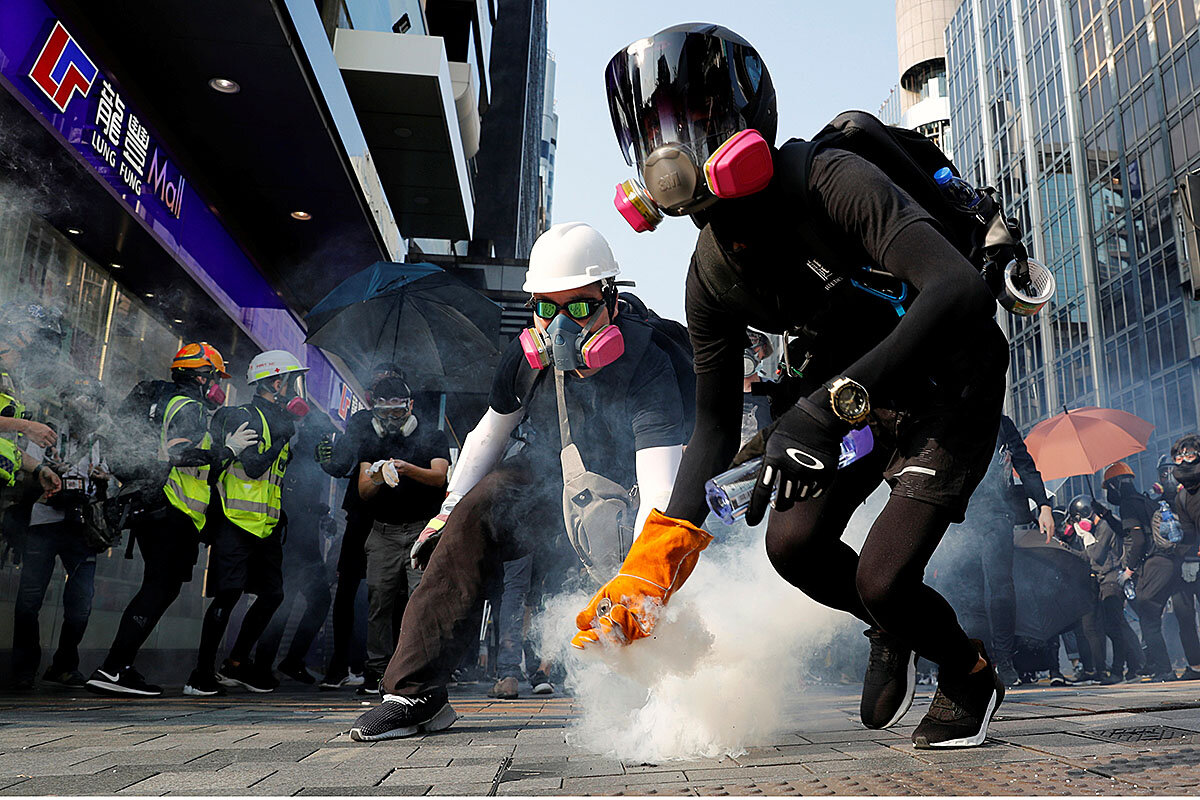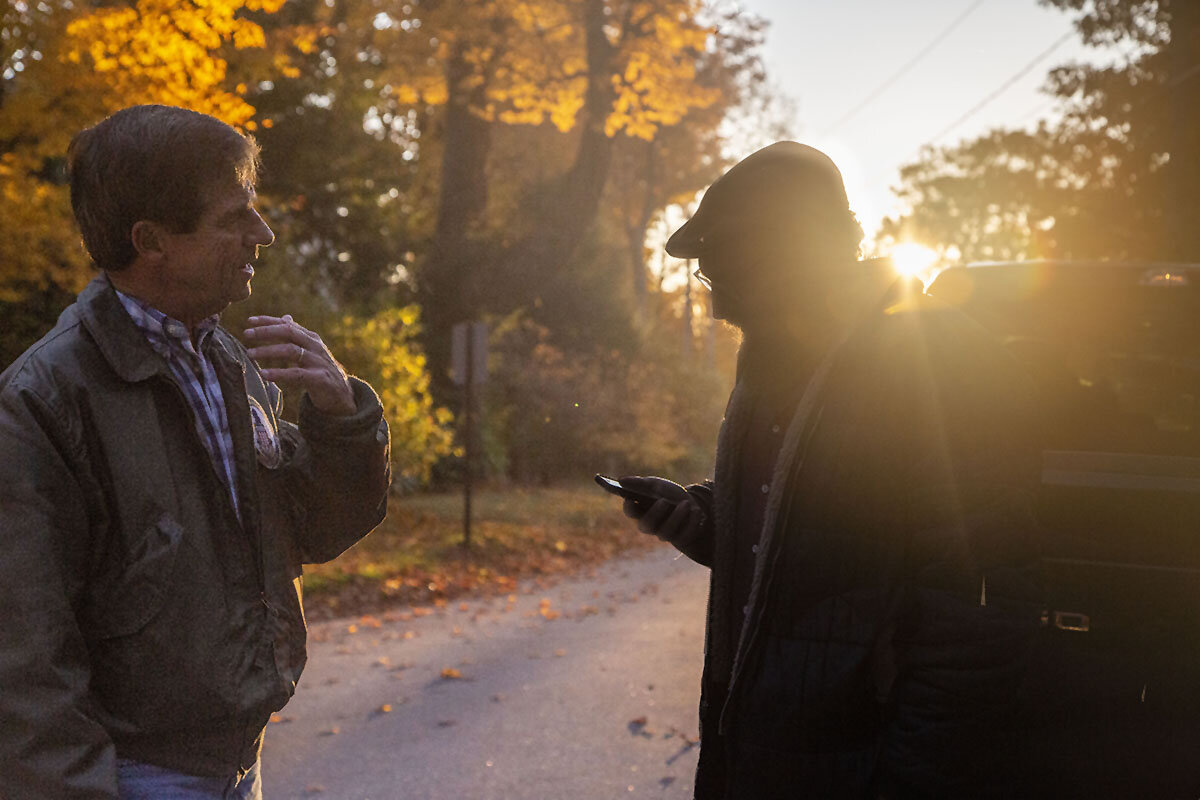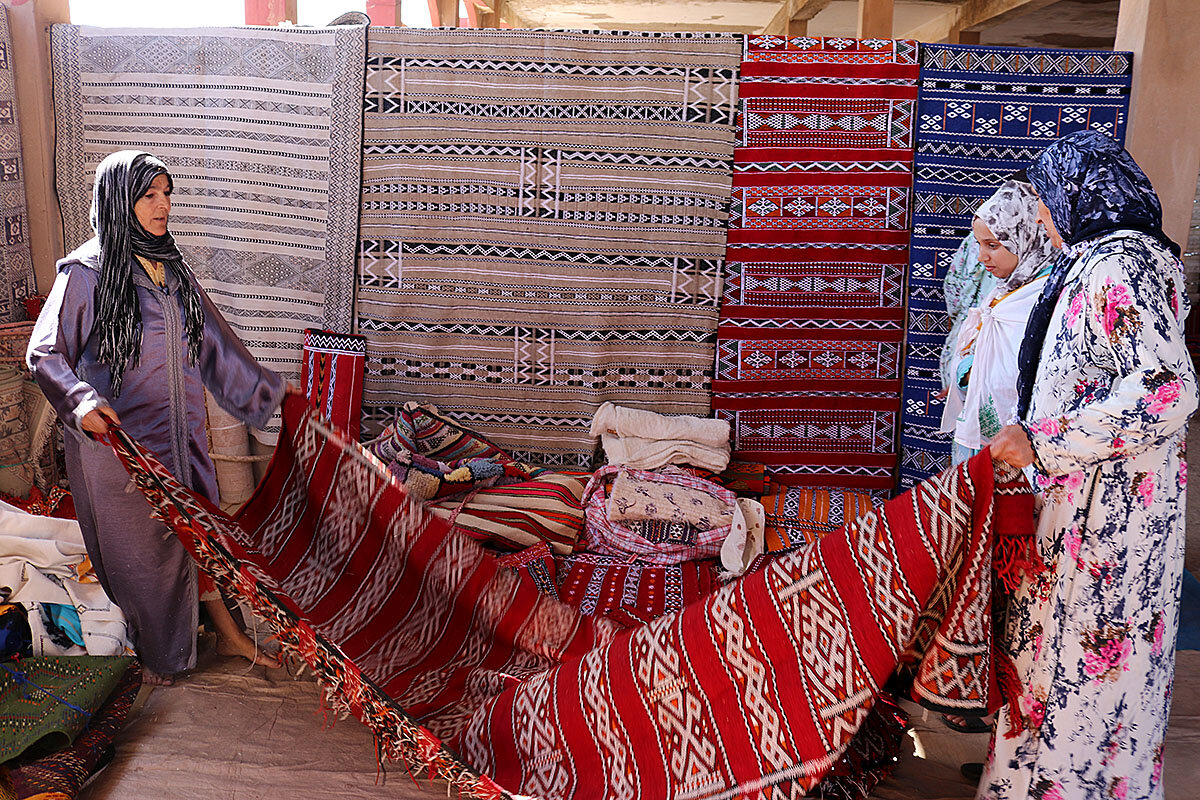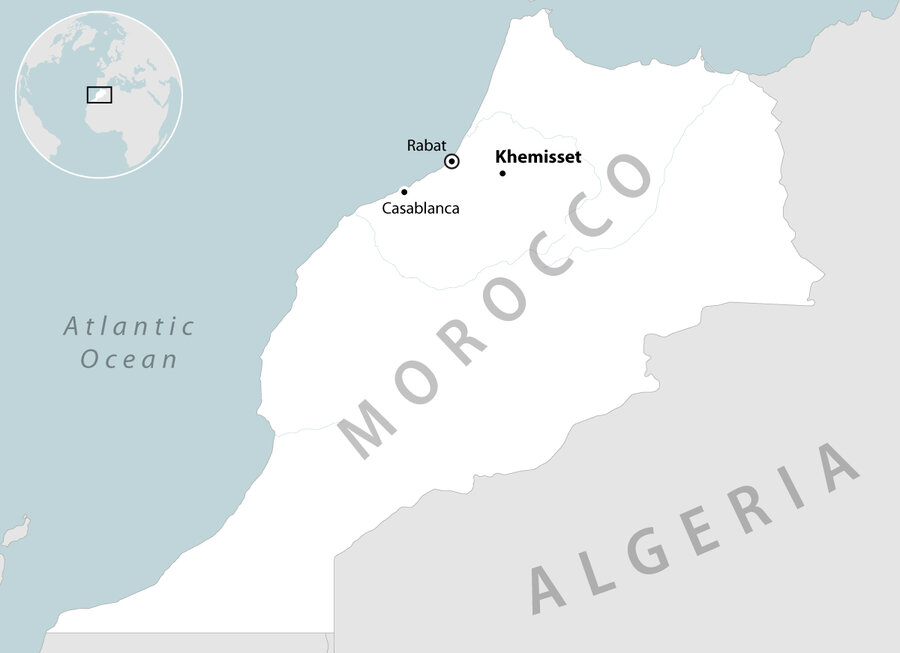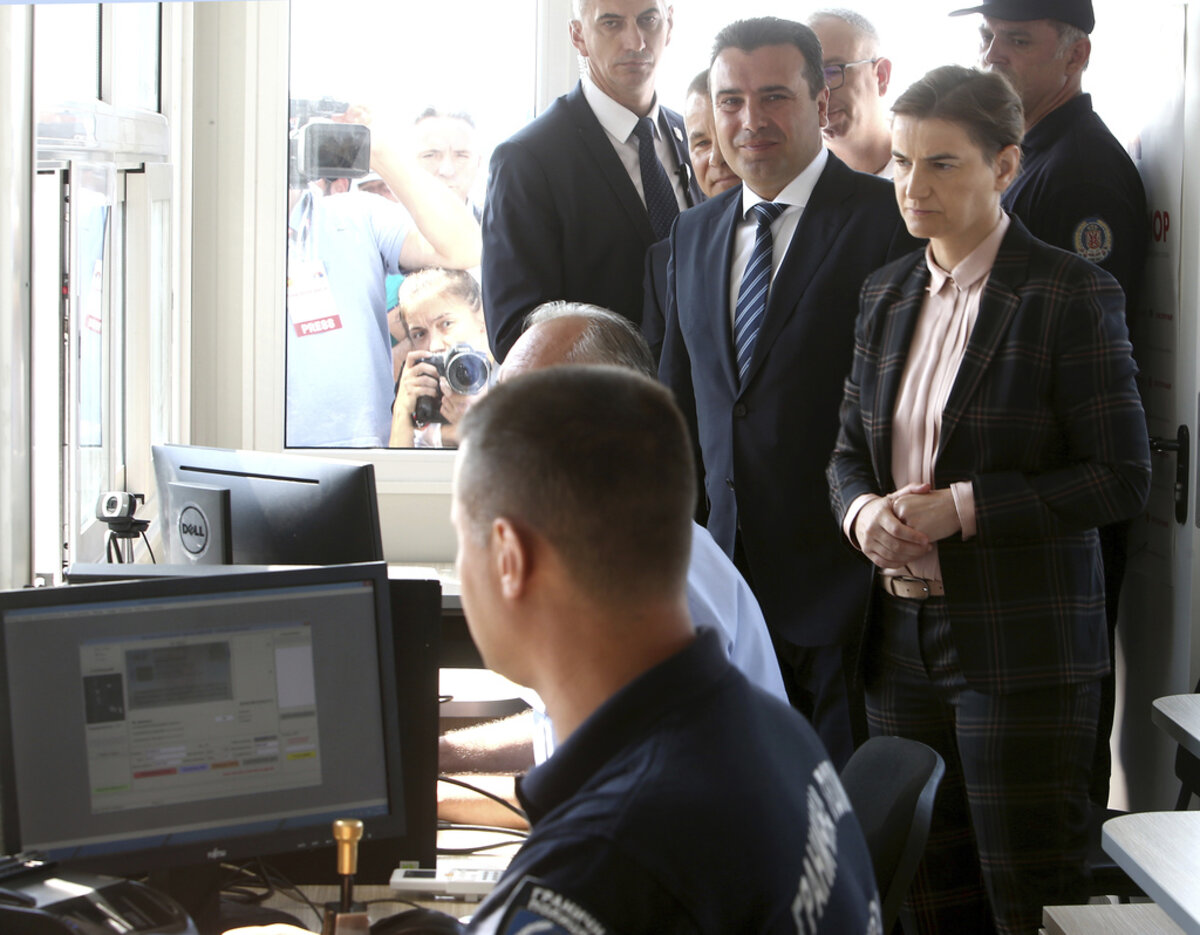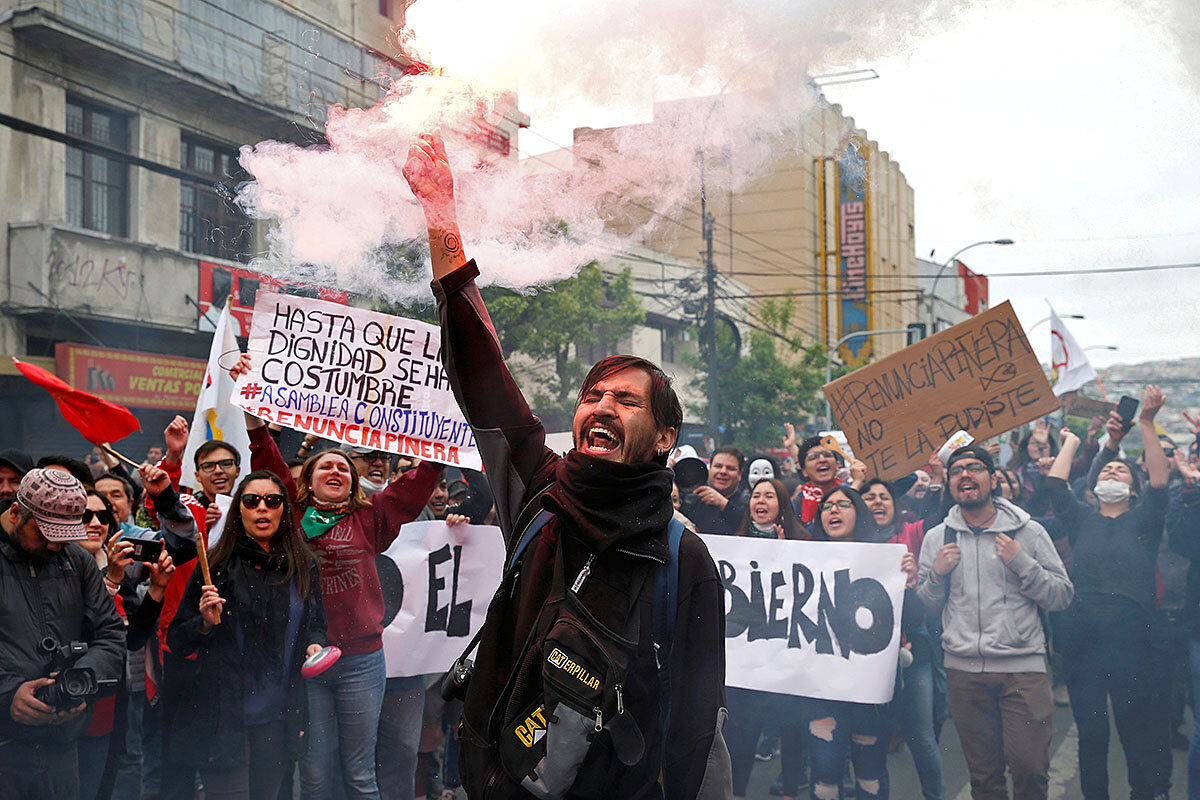When unfounded rumors gain steam, we often blame social media. But hearsay’s influence also points to deeper distrust of government, media, and institutions, all of which have fueled Hong Kong’s protests.
Monitor Daily Podcast
- Follow us:
- Apple Podcasts
- Spotify
- RSS Feed
- Download
 Kim Campbell
Kim Campbell
Welcome to the Daily. Today our offerings explore the erosion of trust in Hong Kong, the perseverance of a long-shot Democratic presidential hopeful, the enigmas of Putin’s Russia, the buoyancy of an all-women’s rug market in Morocco, and the growth of multicultural churches in the U.S.
But first, could a hug change the narrative on school shootings?
Footage of coach Keanon Lowe disarming a Portland, Oregon, student who reportedly planned to take his own life was shared widely over the weekend after it was first released. The security video, from Parkrose High School in May, shows Mr. Lowe handing off the shotgun and then hugging the student tightly.
“I felt compassion for him. A lot of times, especially when you’re young, you don’t realize what you’re doing until it’s over,” he said in an interview in May. “My message to staff members or people that work in schools is, ‘Love your kids.’”
Not everyone agrees that educators should be put in this position, but Mr. Lowe’s action chips away at fear that nothing can be done. Hope and vigilance need to go hand in hand, though, as another shooting yesterday near a school in California suggests.
Still, narrative-changers are emerging. Psychologist Melissa Reeves told Politico this week that rather than simulating danger – like firing blanks, as one school’s active shooter drill did – focus should be on talking with students about safety.
The team behind the 2019 documentary “After Parkland,” about that Florida community’s grieving process, also wants to influence discourse. Next month at the Denver Film Festival a panel will address this question: Can films that deal with school shootings really make a difference?
Perhaps the answer lies in the embrace of a viral video.




